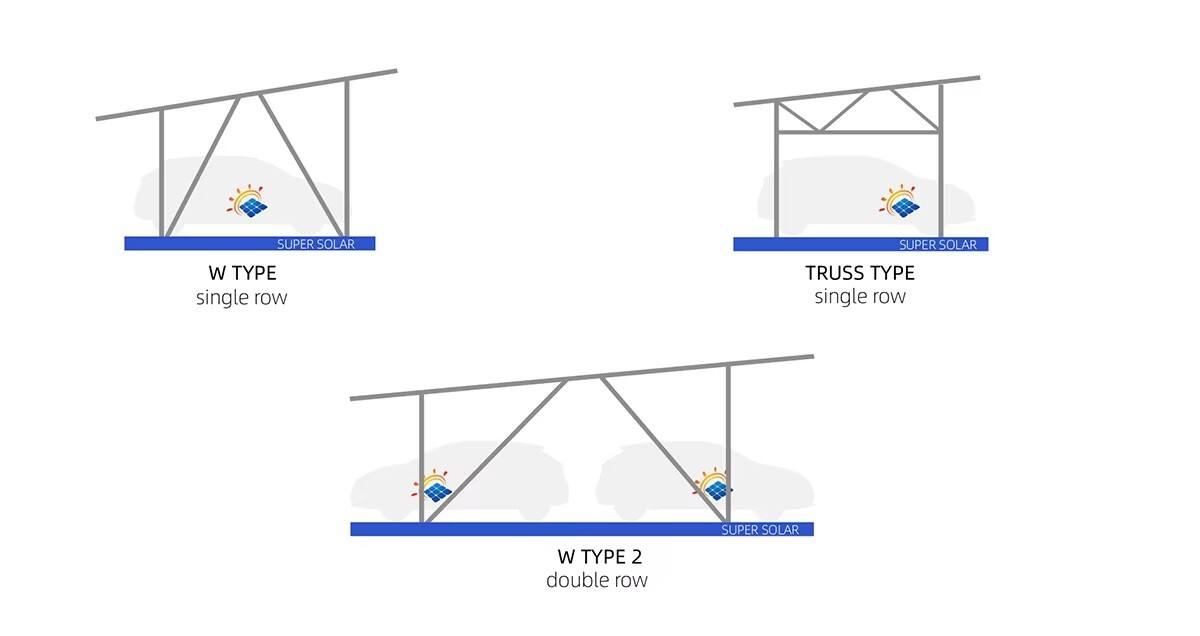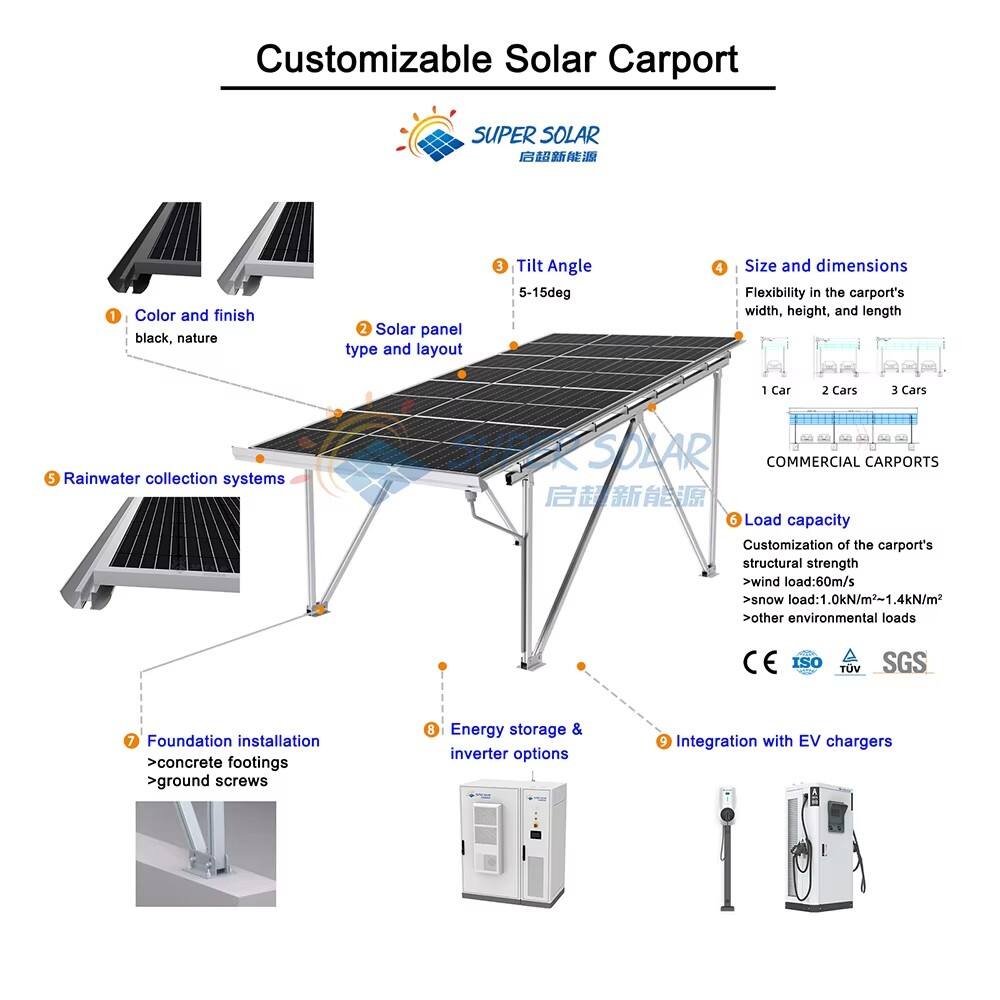Exploring the Rise of Carport Solar
The growing interest in clean energy is reshaping how people view everyday spaces, and one of the most versatile solutions emerging today is Carport Solar. Unlike traditional panels installed solely on rooftops, Carport Solar structures merge functionality with energy generation. They offer shade and weather protection for vehicles while simultaneously producing electricity for homes, businesses, and public facilities. In urban areas where land is limited, Carport Solar provides a dual-purpose approach that maximizes efficiency without compromising aesthetics. More property owners are realizing the potential of these systems to reduce electricity bills, improve sustainability, and even enhance property value. With design innovations, Carport Solar has moved beyond being a practical option—it has become a smart, stylish investment for the future.
Benefits of Carport Solar
Energy Efficiency and Savings
Carport Solar systems generate renewable electricity that reduces reliance on the grid. By converting unused parking spaces into power stations, users benefit from lower utility bills while supporting clean energy initiatives. Over time, the return on investment can be significant, especially in regions with high solar irradiation and increasing energy costs. The combination of parking convenience and power generation makes Carport Solar especially attractive for commercial lots, schools, and residential complexes.
Environmental Sustainability
One of the strongest reasons people adopt Carport Solar is its contribution to sustainability. By relying on sunlight instead of fossil fuels, these systems reduce greenhouse gas emissions. Property owners who adopt Carport Solar often feel proud to contribute to cleaner air and healthier communities. Additionally, governments and municipalities in many regions offer incentives for solar adoption, making Carport Solar a financially and environmentally wise choice.
Design Flexibility with Carport Solar
Single and Double Row Structures
Carport Solar systems can be designed in single or double row formats, depending on available space and parking needs. A single row is suitable for smaller lots or residential driveways, while double rows maximize coverage in larger commercial spaces. Both styles integrate well with solar technology, ensuring consistent energy output. The flexibility of these structures allows architects and engineers to tailor solutions that balance functionality and aesthetics.
Integration with Modern Architecture
Today’s Carport Solar installations are not limited to utilitarian designs. They can be integrated seamlessly into modern architecture, enhancing the look of residential and commercial buildings. With sleek lines, durable materials, and custom finishes, Carport Solar can complement the overall design of a property. This combination of style and function makes them appealing to developers who want to create energy-efficient yet visually appealing environments.
Materials and Durability of Carport Solar
Steel Frame Structures
Durability is essential for any Carport Solar design, and steel frame structures remain one of the most common choices. They provide the strength needed to withstand heavy panels and harsh weather conditions. Steel also offers a long lifespan with minimal maintenance, ensuring that Carport Solar systems remain cost-effective over decades. Galvanized finishes can further protect against corrosion, making these installations suitable for diverse climates.
Aluminum and Lightweight Options
For locations where flexibility and lighter weight are priorities, aluminum Carport Solar frames are increasingly popular. They resist corrosion naturally and provide a sleek appearance while still supporting robust solar arrays. The lightweight design makes installation quicker, reducing labor costs and downtime. Aluminum structures also appeal to property owners who prioritize modern aesthetics in addition to energy generation.
Commercial Applications of Carport Solar
Corporate Parking Facilities
Large corporations are adopting Carport Solar as a way to demonstrate commitment to sustainability while providing practical benefits to employees. Covered parking reduces heat exposure for vehicles while simultaneously producing renewable electricity for office buildings. This energy can be used to power lighting, HVAC systems, or even electric vehicle charging stations. Companies that adopt Carport Solar often see improved employee satisfaction and enhanced corporate reputation.
Educational Institutions
Schools and universities increasingly recognize the value of Carport Solar systems. These installations lower energy costs, provide shade for student and staff vehicles, and serve as educational tools that demonstrate renewable energy in action. Students can learn about clean energy from real-world examples on campus, reinforcing lessons on sustainability while the institution saves money on utilities.
Residential Uses of Carport Solar
Driveway Installations
Homeowners often face the challenge of balancing space with energy needs. Carport Solar provides an ideal solution by transforming a driveway into both a shelter for vehicles and a renewable power source. These installations can be customized to fit the layout of any residential property, offering a functional, attractive way to generate electricity without relying on roof space.
Multi-Family Housing Solutions
In apartments or townhome communities, Carport Solar is increasingly used to share energy savings among multiple residents. By installing larger carport arrays, property managers can offset communal energy costs, reduce carbon footprints, and provide shaded parking for tenants. This creates added value for residents and strengthens the appeal of rental or ownership opportunities.
Carport Solar for Public Spaces
Municipal Parking Lots
City governments are exploring Carport Solar as a way to modernize public infrastructure. Parking lots near transit hubs, parks, or administrative offices can host solar carports that offset energy use for street lighting, public facilities, and electric vehicle charging. Beyond cost savings, these installations send a strong message about a city’s commitment to renewable energy.
Healthcare Facilities
Hospitals and clinics consume large amounts of electricity to power essential equipment. By adopting Carport Solar in their parking lots, healthcare facilities can reduce operational costs and ensure reliable supplementary energy. At the same time, patients and visitors benefit from shaded parking, making the facility more welcoming and environmentally responsible.
Maintenance and Longevity of Carport Solar
Routine Cleaning and Inspections
To maintain optimal performance, Carport Solar systems require regular inspections and occasional cleaning. Dust, debris, and bird droppings can reduce panel efficiency, so keeping surfaces clean is important. Periodic checks of electrical connections and structural integrity ensure long-term reliability. Professional maintenance contracts can simplify these tasks for property owners, ensuring peace of mind.
Technological Upgrades
As solar technology advances, Carport Solar systems can often be upgraded without replacing the entire structure. Inverters, monitoring systems, and even panels can be replaced with newer, more efficient models over time. This adaptability extends the lifespan of the investment and allows property owners to take advantage of innovation without significant disruption.
Enhancing Carport Solar with Smart Features
Integration with EV Charging
One of the most exciting advancements in Carport Solar is integration with electric vehicle charging stations. Parking lots equipped with both solar canopies and charging infrastructure provide a complete clean energy ecosystem. Drivers can park in the shade, charge their vehicles, and know that their power is coming from renewable energy. This feature is increasingly popular in both residential and commercial applications.
Energy Storage Options
Combining Carport Solar with battery storage enhances energy independence. Excess electricity generated during the day can be stored and used at night or during power outages. This capability makes Carport Solar even more valuable, especially for businesses that rely on uninterrupted power. With storage integration, property owners can maximize energy use and savings.
Financing and Incentives for Carport Solar
Government Rebates and Tax Credits
In many regions, Carport Solar installations qualify for financial incentives. Tax credits, rebates, and renewable energy grants help offset upfront costs, making adoption more accessible. These incentives reduce payback periods and improve the overall economics of investing in solar carports. Property owners should explore available programs to take full advantage of financial support.
Leasing and Power Purchase Agreements
For those who want the benefits of Carport Solar without large upfront expenses, leasing and power purchase agreements are viable options. These financial models allow property owners to enjoy energy savings and shaded parking while a third party handles installation and maintenance. This flexibility makes solar adoption possible for organizations and homeowners with limited budgets.
Table of Contents
- Exploring the Rise of Carport Solar
- Benefits of Carport Solar
- Design Flexibility with Carport Solar
- Materials and Durability of Carport Solar
- Commercial Applications of Carport Solar
- Residential Uses of Carport Solar
- Carport Solar for Public Spaces
- Maintenance and Longevity of Carport Solar
- Enhancing Carport Solar with Smart Features
- Financing and Incentives for Carport Solar




